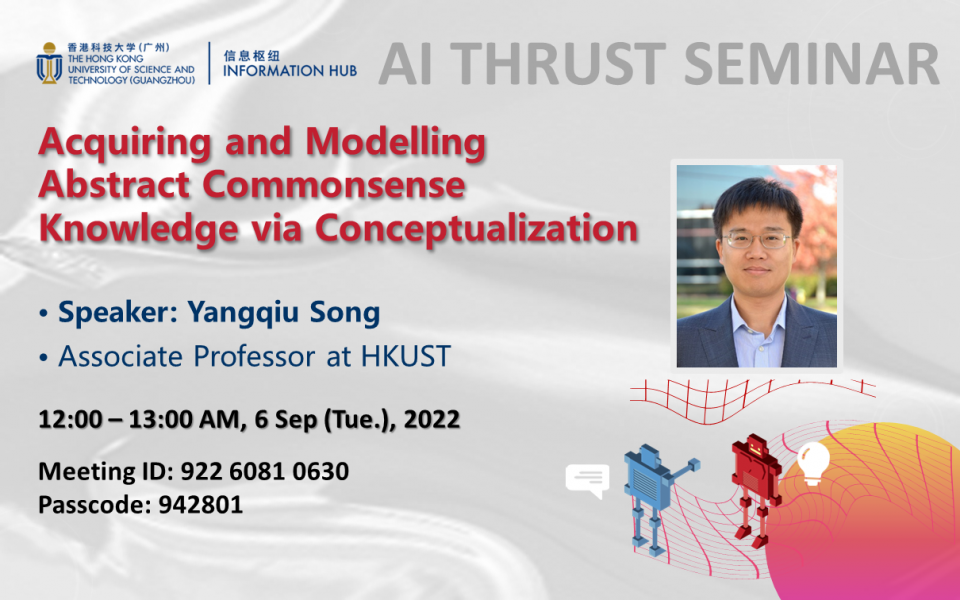AI Thrust Seminar | Acquiring and Modelling Abstract Commonsense Knowledge via Conceptualization
Conceptualization, or viewing entities and situations as instances of abstract concepts in mind and making inferences based on that, is a vital component in human intelligence for commonsense reasoning. Although recent artificial intelligence has made progress in acquiring and modelling commonsense, attributed to large neural language models and commonsense knowledge graphs (CKGs), conceptualization is yet to thoroughly be introduced, making current approaches ineffective to cover knowledge about countless diverse entities and situations in the real world. In this talk I will talk about our recent work that thoroughly studies the possible role of conceptualization in commonsense reasoning and formulates a framework to replicate human conceptual induction from acquiring abstract knowledge about abstract concepts. Aided by the taxonomy Probase, we develop tools for contextualized conceptualization on ATOMIC, a large-scale human annotated CKG. We annotate a dataset for the validity of conceptualizations for ATOMIC on both event and triple level, develop a series of heuristic rules based on linguistic features, and train a set of neural models, to generate and verify abstract knowledge. A large abstract CKG upon ATOMIC is then induced, ready to be instantiated to infer about unseen entities or situations.
Dr. Yangqiu Song is an associate professor at HKUST. Before that, he was an assistant professor at WVU (2015-2016), a post-doctoral researcher at the Cognitive Computation Group at UIUC (2013-2015), a post-doctoral fellow at HKUST, Hong Kong (2012-2013), an associate researcher at Microsoft Research Asia (2010-2012) and a staff researcher at IBM Research China (2009-2010). He received his B.E. and Ph.D. degrees from Tsinghua University, China, in July 2003 and January 2009, respectively. His current research is to use machine learning and data mining to extract and infer insightful knowledge from big data. The knowledge helps users better enjoy their daily living and social activities or helps data scientists do better data analytics. He is particularly interested in machine learning, data mining, natural language processing, and knowledge graph related research.
